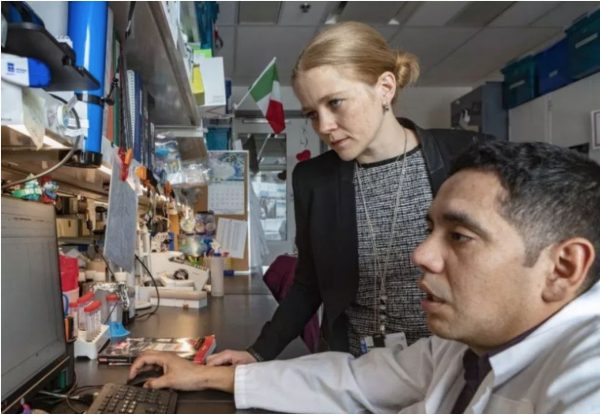At only two and a half months old, a baby girl named Mathilde Poliquin passed away at the Montreal Children’s Hospital from an unknown neurodevelopmental pediatric disorder. Her head was much smaller than normal, and her brain had not developed properly. Six years later, a group of doctors from the McGill University Health Centre have successfully identified the genetic mutation that resulted in Mathilde’s death. A defect in the VARS gene, previously unlinked to any human disease, resulted in a genetic kind of leukoencephalopathy, a group of neurodegenerative diseases caused by abnormalities in nerve cells and myelin, the white-matter in the brain.
“During my residency, I started being interested in neurodegenerative diseases and realized that families who had a precise diagnosis were, in general, grieving better,” Geneviève Bernard, a co-author of the study as well as an assistant professor in the Department of Neurology and Neurosurgery, said. “Patients with rare and ultra-rare diseases and their families deserve an answer and deserve that researchers work on these diseases.”
The study involved conducting both whole exome and whole genome testing in which the researchers scan an individual’s entire genetic code for any imperfections that could be the source of disease.
By performing extensive genetic tests on seven unrelated children who all suffered from similar neurodegenerative disorders, the group of scientists was able to identify the mutation in the VARS gene. This gene encodes the enzyme Valyl-tRNA synthetase, crucial for protein building. It also generates a protein containing the amino acid valine, which significantly influences cellular health. If any damage occurs to these enzymes, a number of disorders can arise including neuropathy and microcephaly.
“Finding the causal gene is the first step to find[ing] therapies,” Bernard said. “But, before we get there, we need to understand and study the pathophysiology of the disease.”
Through more investigative research, Bernard is hopeful that her team can find potential symptomatic targets for developing therapies. The researchers explained that finding a reduced amount of enzymatic activity in cells prompted the hypothesis that amino acid supplementation could help in the restoration of the altered enzyme in the children’s brains.
International collaboration plays a key role in identifying these kinds of neurogenetic diseases in children all over the world. This study brought together doctors from San Diego, Montreal, and Cairo, which Bernard identified as a key to their success.
“For ultra-rare conditions such as this one, collaboration among multiple research institutions is crucial to confirm changes identified in the genetic code that may be common to multiple children with similar clinical symptoms,” UC San Diego neurologist and study co-author Jennifer Friedman said in an interview with the McGill Newsroom.
Though a cure has yet to be discovered, the identification of the cause of Mathilde’s disease gave closure and hope to her family.
“The diagnosis gave us some closure,” Gabriel Poliquin, Mathilde’s father, said in an interview with the McGill Newsroom. “It felt good to know that our daughter could help other children and the scientific community at large.”








